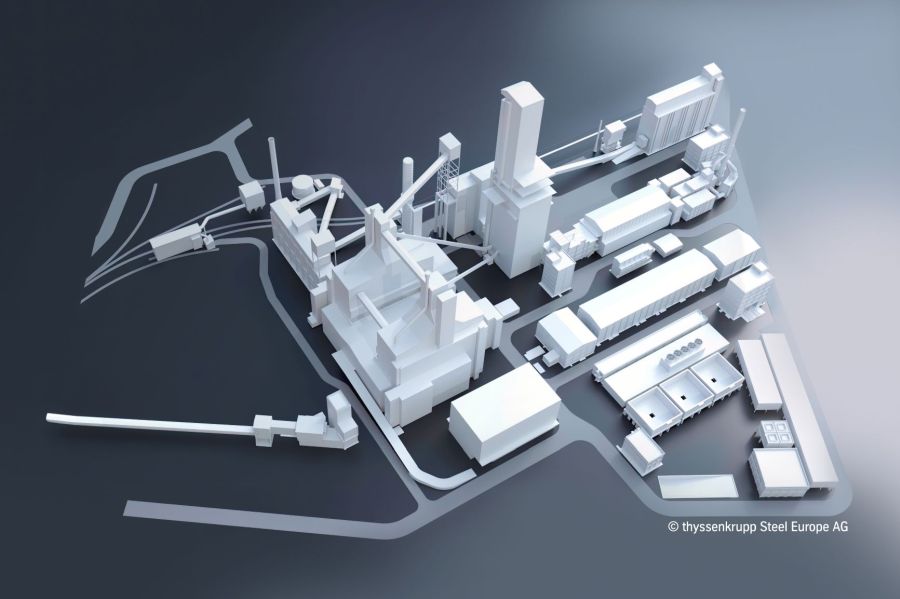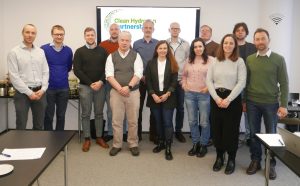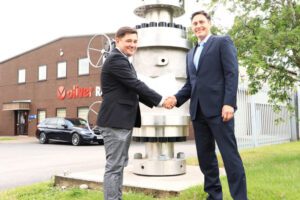The project will help avoid more than 3.5 million metric tons of CO2 per year in the future, which corresponds to around 20% of the company’s current emissions. The order volume for SMS amounts to over 1.8 billion euros and marks the largest single order in the history of the company. Moreover, significant additional structural building services will be required in addition to infrastructure and media connections. The preliminary tasks can be started immediately, under the scope for an earlier start to work that has been approved. The plant will have a capacity of 2.5 million metric tons of directly reduced iron (DRI). The overall project remains subject to European Union approval under state aid provisions, as well as the final funding decision. Both are expected in the coming months. The state of North Rhine-Westphalia and the German government have already signaled substantial financial support for the project.
The contract award marks a decisive technological turnaround for Germany’s biggest steelmaker in its more than 200-year history: as part of the tkH2Steel transformation concept, the replacement of CO2-intensive steel production by climate-friendly technologies is now beginning. Up to this point, coal-based hot iron production in the blast furnace always involved emitting large amounts of CO2, amounting to about 20 million metric tons per year from the Duisburg location alone. Hydrogen-based processes in direct reduction plants offer a significant basis for manufacturing carbon-neutral steel in the future. thyssenkrupp Steel is already planning to avoid as much as 6 million metric tons of CO2 by 2030, representing well in excess of 30% of its emissions. The transformation to carbon-neutral production should be completed by 2045 at the latest.
In pursuit of the best technological solution, thyssenkrupp will be the first steelmaker in the world to combine a 100% hydrogen-capable direct reduction plant with innovative melters. Positioning the two melters immediately adjacent to the direct reduction plant allows the solid input stock produced there to be converted into molten iron immediately; this makes the entire process particularly efficient. In addition, the spatial requirements and constraints a complex iron and steel plant involves can be taken into account. The direct reduction plant is based on MIDREX Flex technology. SMS will also deliver the innovative melters, slag granulation and other auxiliary equipment, for example water recycling. SMS is building the plant on an EPC basis. This means the company bears overall responsibility for the engineering, procurement and construction of the plant. In addition, significant further work is required relating to structural and civil engineering, infrastructure and media supply.
Martina Merz, CEO of thyssenkrupp, said: “At thyssenkrupp, we are doing everything in our power to accelerate the green transformation. This is also the reason why, despite all the challenges and uncertainties, we are already launching the direct reduction plant. We cannot wait until all the issues have been resolved. We must act now and invest now if we want to achieve our climate targets and secure the future of this industrial location. That is why today is a great day, both for the climate and for the industrial transformation in our federal state.”






